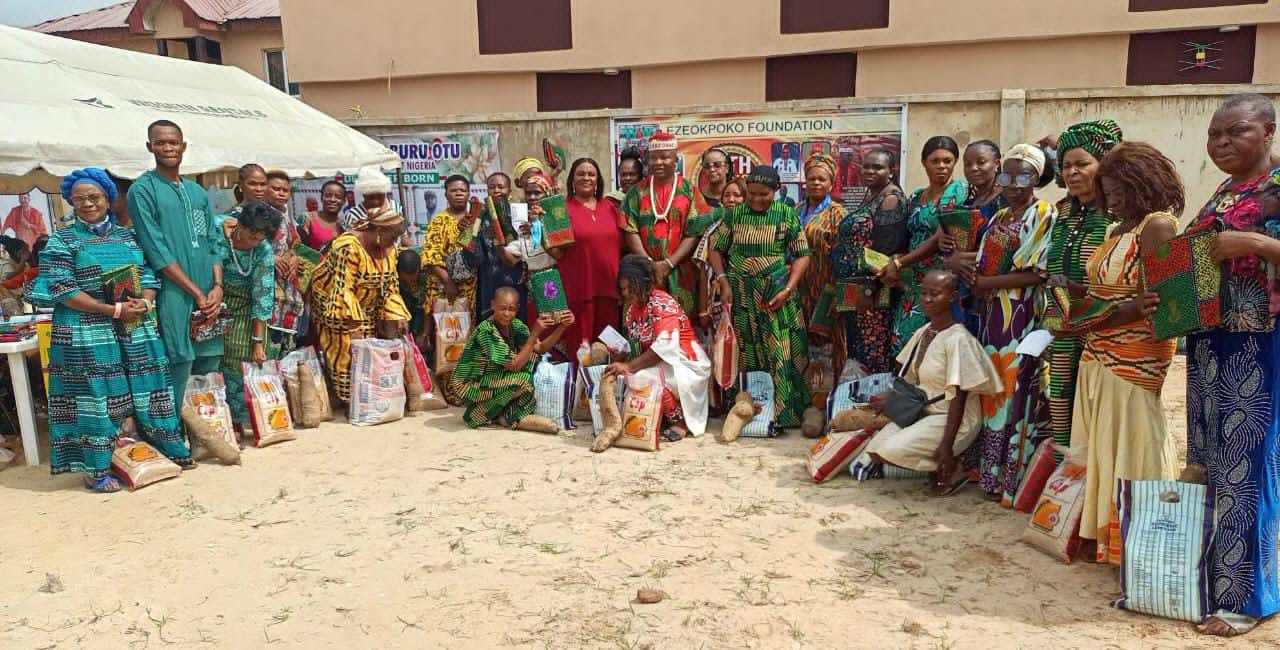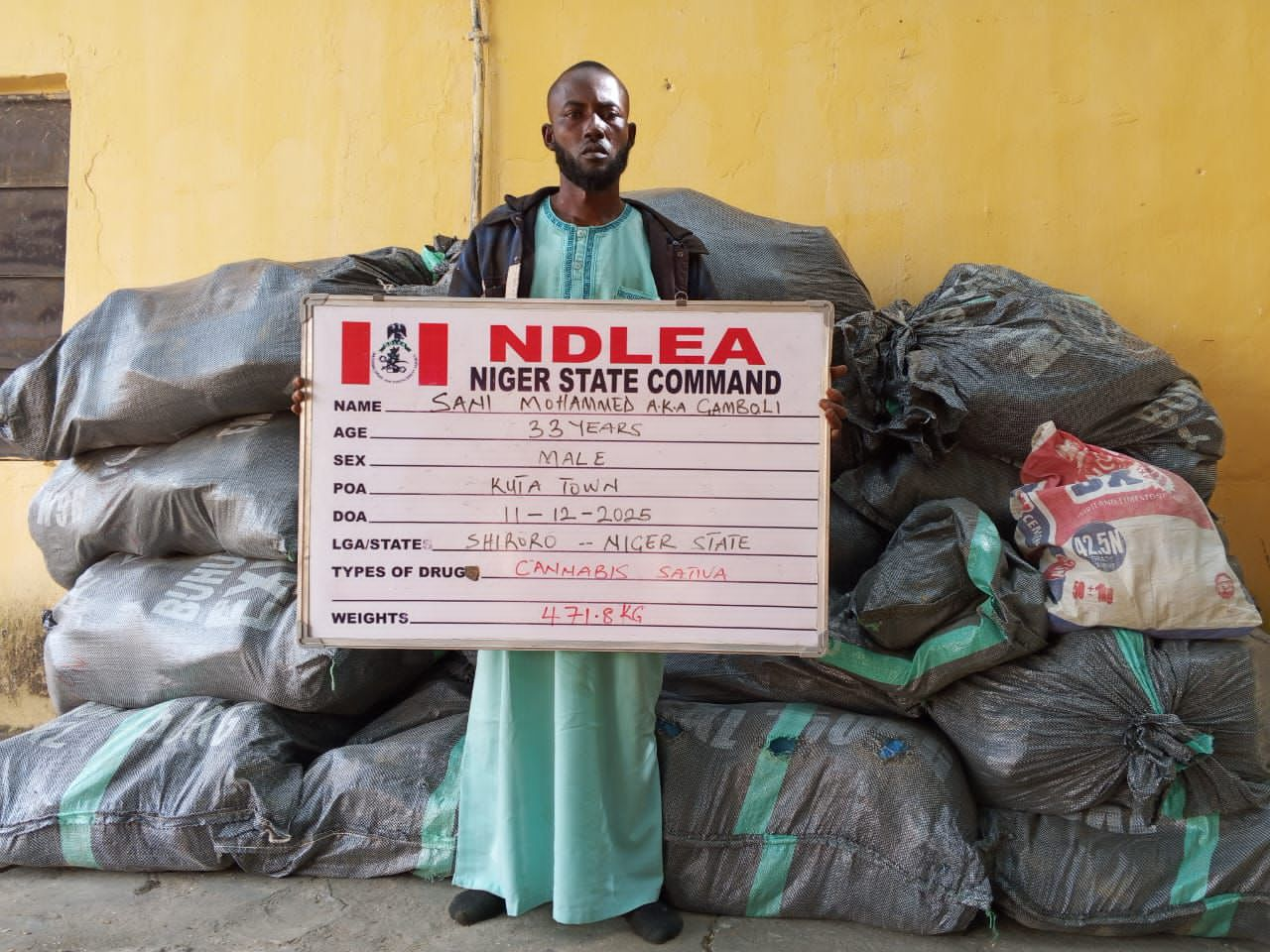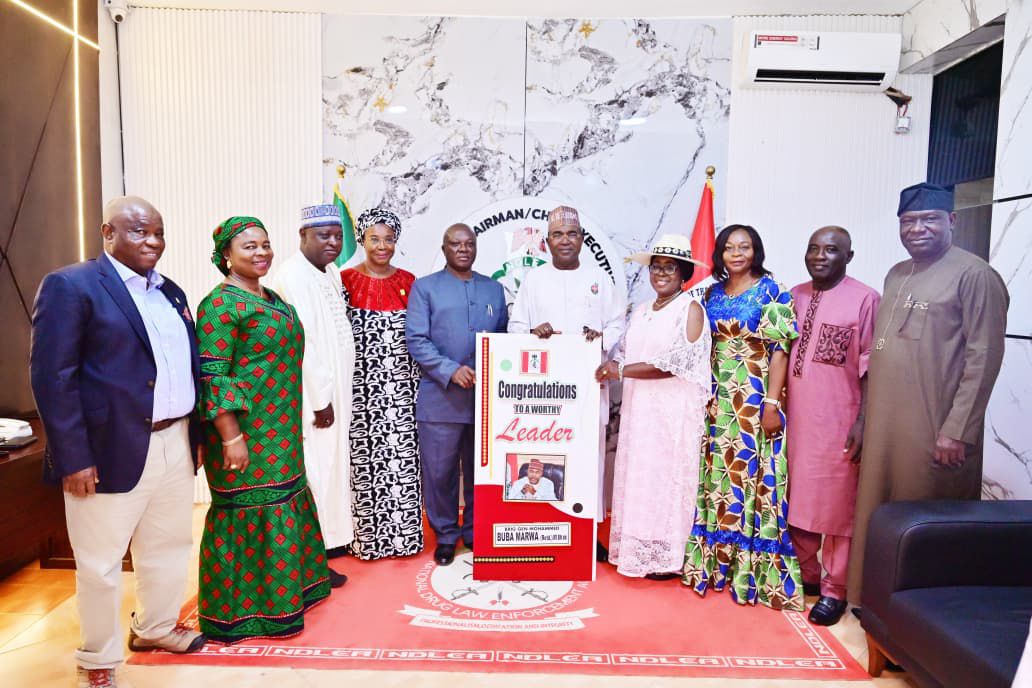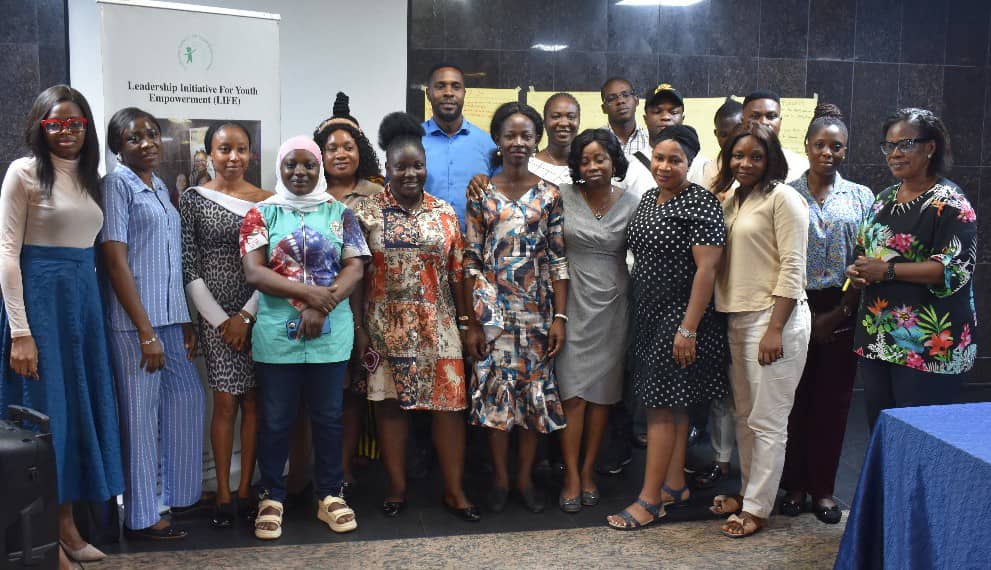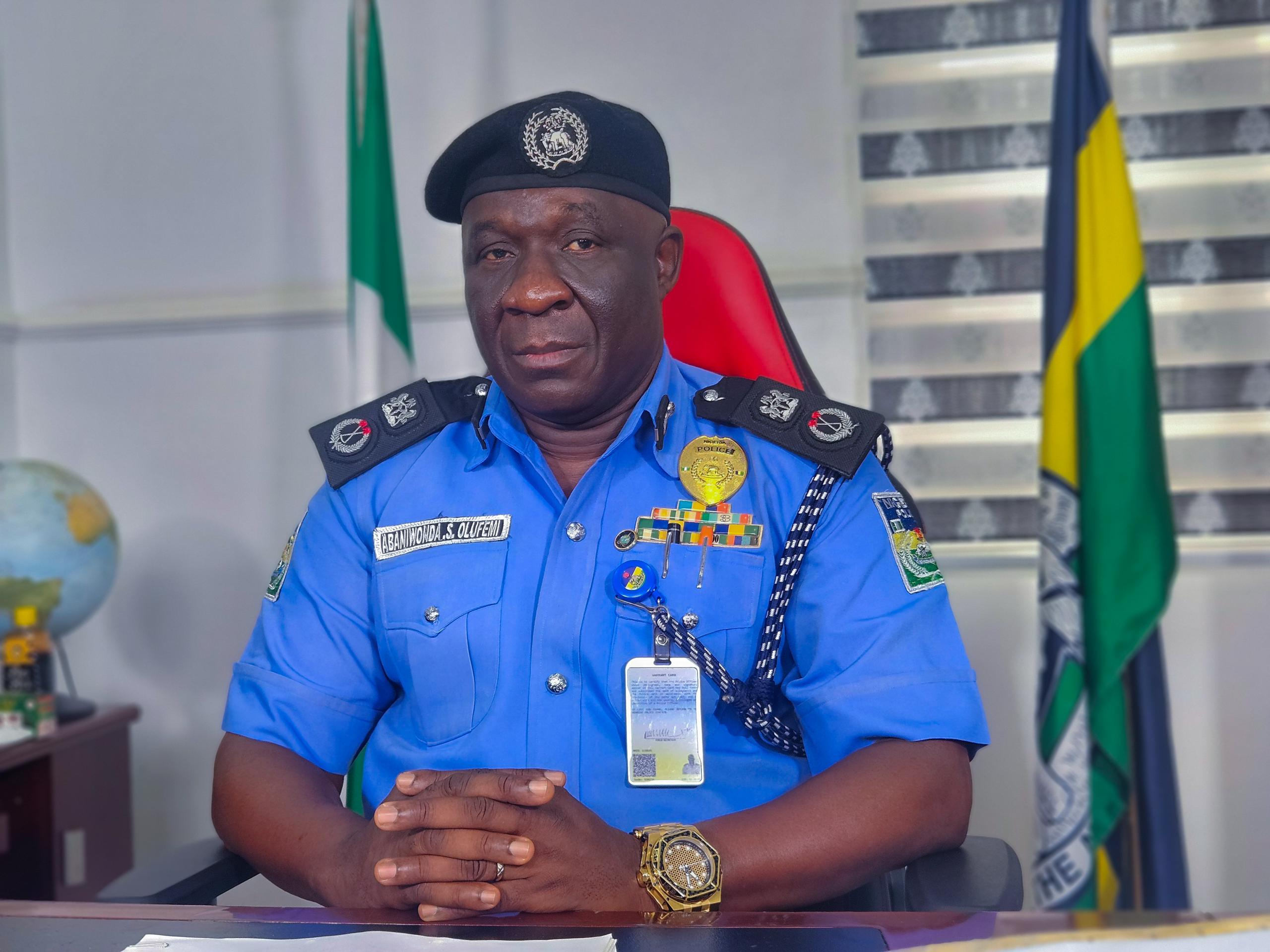Fulfil your age-long pledge of $100b to assist Developing countries mitigate adverse effects of Climate Change – Omoragbon charges Developed Nations
6 min read
Pastor Peters Osawaru Omoragbon,
Fulfil your age-long pledge of $100b to assist Developing countries mitigate adverse effects of Climate Change – Omoragbon charges Developed Nations
By Cyriakus Nnaji

Pastor Peters Osawaru Omoragbon, the Executive President/Chief Executive Officer (CEO) of Nurses Across the Borders International has called on the developed world to fulfil their age-long pledge of $100b to assist developing countries mitigate adverse effects of Climate Change.
Omoragbon who is also the First Designated Contact Person from Nigeria to the United Nations Framework Convention on Climate Change said “We are awaiting the firm commitment of the developed nations in rising up to their age-long promise to jointly raise $100 billion annually from all sources to address the needs of developing countries in the context of meaningful mitigation actions and transparency on implementation and fully operationalize the Green Climate Fund through its capitalization as soon as possible. Remember this was to have started since 2020.”
Pastor Omoragbon made the appeal at a side event at the ongoing United Nations Framework Convention on Climate Change (UNFCCC) SB 58 Conference in Bonn Germany.
The side event which has the theme: ‘Strengthening International Collaboration for National Engagement and Development Strategies’, was organised by the Nurses Across The Borders, Friedrich-Ebert-Stiftung (FES) and Green Mobilization Initiative (GMI).
Omoragbon in his concept paper noted that one of the major outcomes of the UNFCCC COP 27 Conference which was held in Egypt in November, 2022 under the Glasgow-Sharm el-Sheikh Work Programme on the Global Goal on Adaptation referred to in Decision 7/CMA.3 was the establishment of a framework on the decision to initiate the development of a framework for the global goal on adaptation to be undertaken through a structured approach, recognising that adaptation is a global challenge faced by all with local, subnational, national, regional and international dimensions, and it is a key component of and makes a contribution to the long-term global response to climate change to protect people, livelihoods, and the ecosystems, taking into account the urgent and immediate needs of developing country Parties that are particularly vulnerable to the adverse effects of climate change.
He spoke further saying “This multi-faceted side event will address the progress, problems, and prospects of the Global Stocktake and explore the development and training programs opportunities that strengthen national institutions against the climate change crisis; and promote ecological restoration through tree planting. It speaks to the thematic areas of this SB 58 on Mitigation, including response measures, Health, Capacity building; Disaster risk reduction, risk assessment/insurance; and Systems transformation.”
Speaking on the goal of the side event he stated that the essence was to explore the North-South Collaboration for the development & implementation of education and training programs, including the strengthening of national institutions and the exchange or secondment of personnel to train experts at scientific, technical & managerial levels.
According to Pastor Omoragbon, Article 12 of the Paris Agreement stated that: Parties shall cooperate in taking measures, as appropriate, to enhance climate change education, training, public awareness, public participation and public access to information, recognizing the importance of these steps with respect to enhancing actions under this Agreement .
He added “The Side Event which involved participants and speakers from both local and international countries vast in the knowledge of the climate change campaign and the UNFCCC process provided insight into cutting edge solutions and exchanges on best practices.”
He further disclosed that in strengthening Article 6 of the convention, the event will attempt to draw attention to and address issues of Promoting and facilitating at the national and, as appropriate, sub-regional and regional levels, and in accordance with national laws and regulations, and within their respective capacities the development and implementation of educational and public awareness programmes on climate change and its effects; Public access to information on climate change and its effects; Public participation in addressing climate change and its effects and developing adequate responses; and Training of scientific, technical and managerial personnel.
Other issues to be addressed at the event include ensuring Cooperation and promotion, at the international level, and, where appropriate, using existing bodies in the development and exchange of educational and public awareness material on climate change and its effects; and the development and implementation of education and training programmes, including the strengthening of national institutions and the exchange or secondment of personnel to train experts in this field, in particular for developing countries.
Omoragbon, in conclusion, acknowledged the impressive turnout of participants both onsite and virtual by reiterating that there is no gain saying that from the robust discussions at the event, the Event Captured fully, the five targets of Goal Number 13 of the Sustainable Development Goals by strengthening resilience and adaptive capacity to climate related disasters; integrating climate change measures into policies and planning; building knowledge and capacity to meet climate change by improving education and awareness creation and human and institutional capacity, adaptation, impact reduction and early warning.
Other speakers at the Side event include Dr. Faruk Umar Abubakar, Registrar/CEO Nursing and Midwifery Council of Nigeria who spoke on the topic ‘How can Healthcare Education Strengthen Collaboration for Building a Strong National Adaptation Plan’, while another Speaker Ms Haneen Hamed – Board Member of Climate Action Network Arab World (CANAW) dwelt on the Subtheme: ‘The role of civil society in the climate agenda locally, regionally and internationally and how impactful can they be.’ She acknowledged the myriad of problems confronting the world from political instability to terrorism but nonetheless asserts that the world can no longer ignore the devastating effect of climate change disasters to human and sustainable development as a security threat of great proportion.’
Mr. Gabriel Aborele, the Executive Director, Green Mobilization Initiative (GMI) speaking on Promoting ecological restoration in schools through tree planting spoke from the point of view of an Environmentalist/Forestpreneur/Climate Change activist creating awareness in Ecosystem Restoration Designs and tree planting activities with the involvement of schools and communities in a participatory manner, reported organizing tree planting sessions with secondary schools students and have so far planted trees in 26 Secondary Schools in the Federal Capital Territory, Abuja between 2018 to date, planted in 8 schools in Abeokuta in 2017 and one school in Kaduna in 2011.
Read Also:Finally! Hilda Baci’s Record For Longest Cooking Marathon Is Confirmed by GWR
Abbas emerges Reps Speaker, Wase, Jaji suffer embarrassing defeats
Nithi Nesadurai, Director and Regional Coordinator Climate Action Network Southeast Asia (CANSEA) and President Environmental Protection Society Malaysia equally answered some questions on the Subtheme: ‘The role of civil society in the climate agenda locally, regionally and internationally and how impactful can they be. To him, the role of the CSO cuts across all strata of human development as those closest to the grassroots and are major stakeholders in the climate change campaign. He admonished that they needed to be encouraged and engaged by all government agencies.
While Mr. Ralueke Ekezie: Nigeria Country Lead, the World Continuing Education Alliance tackled the topic ‘Using High-Impact Healthcare Professionals’ Training for Climate Change and Public Health Education through the Largest and Fastest Verified Network of Healthcare Organizations in Africa.’ Mr Ekezie appreciated Nurses Across the Borders for this initiative and introduced their organization as a leading Training organization using mobile technology for healthcare professionals. He reiterated their preparedness to collaborate with Nurses Across the Borders in developing the needed curriculum for climate change and public health in their training.
The last but not the least was Barrister Chidiebere Chuddy Ani, Legal Practitioner with Masters in Environmental Law who spoke on ‘The Role of International Organizations in Campaign For Climate Change and Healthcare Legal Framework in Nigeria and Africa’.

